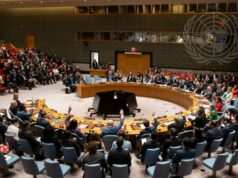Reallocation of frequencies may require new legislation
By Patrizia Paola C. Marcelo,
Reporter
PLANS to reallocate mobile frequency may require legislation, the Department of Information and Communications Technology (DICT) said, possibly prolonging the process of introducing a third player in the telecommunications industry.
“This may need a law, new legislation, and it may take a long time. We cannot take it back without due process,” DICT Officer-in-Charge and Undersecretary Eliseo M. Rio, Jr. said in a phone interview.
Mr. Rio said that a new law might be needed because if the government simply takes back the frequencies and reassigns them to another telecommunications firm, “it will go to court, before we get them [frequencies].”
Mr. Rio has said that the DICT will draft a policy seeking a “more equitable” distribution of frequencies, particularly with the upcoming entry of a third player.
Incumbents PLDT, Inc. and Globe Telecom, Inc. hold the majority of radio frequencies. The Philippine Competition Commission estimates that only 12.8% of the spectrum will be available for a potential third player.
Mr. Rio said that even in the event the department takes a “non-interference” approach, and opens up the spectrum to joint use, there is a legal process to be observed.
“We cannot take them back without any due process, it will affect public interest, and their subscribers. What you can do is take those without users, but then again, it needs quasi-judicial process,” Mr. Rio said, adding that there is the challenge of proving that telcos are not utilizing frequencies. “The telcos will say, we have plans to use it, we’re just waiting for investors, etc.”
PLDT and Globe have said that they are using frequencies in the 700-megahertz (MHz) spectrum which they acquired from their purchase in 2016 of San Miguel Corp.’s telco assets.
While the DICT is studying how to reallocate frequencies, it has stated in its policy guidelines for the entry of a third player that the winner of the “auction” or selection process will be assigned available frequencies.
The government will choose the third player, based on the highest committed investment for the first five years. Applicants must have a congressional telco franchise, must not be an affiliate of PLDT or Globe, and have a commitment from a foreign partner if applicable.
Mr. Rio has estimated that the third player will need to spend P300 billion over five years, or P60 billion per year, in capital and operating expenses.
Hastings Holdings, Inc., a unit of PLDT Beneficial Trust Fund subsidiary MediaQuest Holdings, Inc., has a stake in BusinessWorld through the Philippine Star Group, which it controls.



